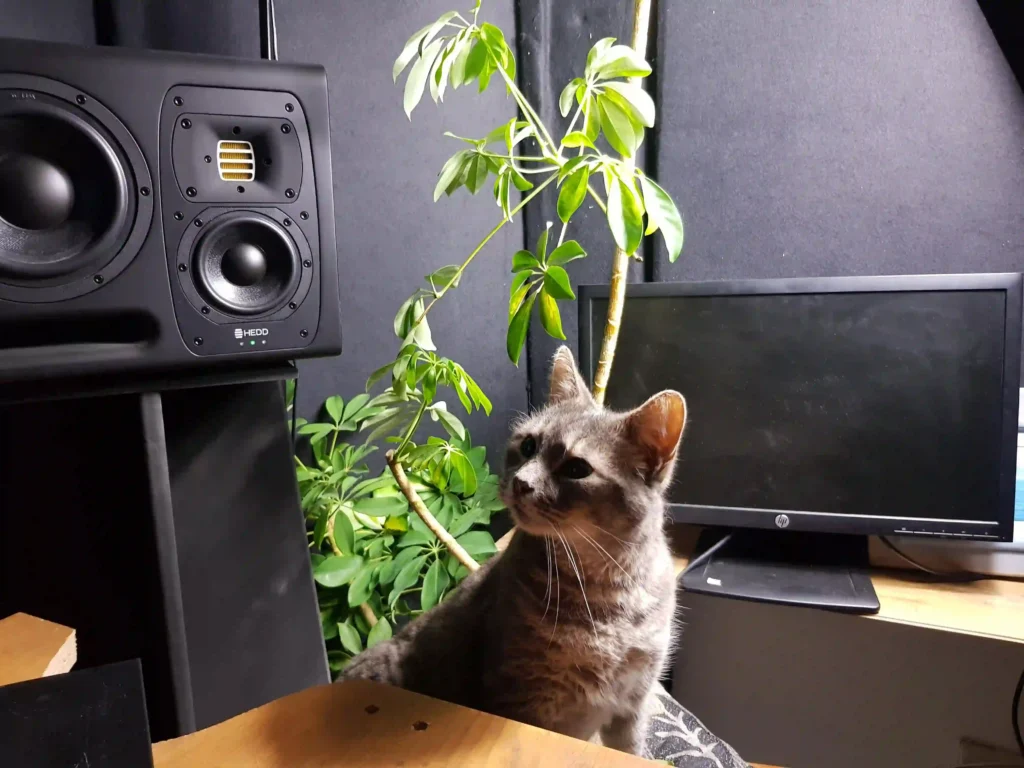Time. It’s a producer’s most valuable resource, and arguably the easiest to squander.
Ever sat down to make music, only to find yourself hours later, deep in a rabbit hole of preset surfing, snare tweaking, DM responding, or tutorial watching… with nothing to show for it?
You’re not alone.
The truth is, creativity thrives on freedom. But without structure, it’s easy to mistake being busy with actually making progress.
This post is about finding that sweet spot: protecting your creative flow while managing your time like a seasoned pro.
Why Time Management Matters (Especially) to Music Producers
Whether you’re a full-time artist, a weekend warrior, or squeezing music-making around a day job, your output is directly linked to how you spend your time.
But here’s the thing: most producers don’t have a productivity problem. They have a focus problem.
When you manage your time intentionally, you can:
- Finish more music: Finally get those tracks across the finish line.
- Improve your skills faster: Focused practice beats aimless noodling every time.
- Avoid burnout: Protect your passion by working smarter, not harder.
- Build confidence: Consistent progress fuels creative momentum.
The Paradox: Structure Enables Freedom
Many producers worry that strict routines will stifle their creativity.
But the reality is, a flexible system actually accelerates your flow state because it eliminates friction. No more wondering what to work on, endlessly tweaking old mixes, or chasing sonic mirages. You show up, do one thing, and move on.
Creativity needs space, yes. But it also needs containers to thrive.
5 Strategies to Manage Your Time (Without Killing Your Vibe)
- Time-Block Your Week
- Instead of waiting for inspiration to strike, schedule dedicated music-making time.
- Even two focused sessions a week are more effective than ten sporadic ones.
- Action: Block out recurring time in your calendar. Treat it like a client session. Non-negotiable.
- Pro-Tip: Identify your peak creative hours (morning, late night?) and fiercely protect them.
- Use Session Themes
- Don’t try to mix, arrange, sound design, and export all in one marathon session. Burnout is inevitable.
- Instead, split your workflow into focused “modes”:
- Idea Sessions: Jam. Explore sounds. Zero pressure.
- Arrangement Sessions: Turn loops into full song structures.
- Mixing Sessions: Clean, EQ, balance.
- Admin Sessions: File management, sample tagging, promo tasks.
- Each mode requires different mental energy. Group similar tasks to minimize decision fatigue.
- Limit Your Options
- Too many plugins. Too many samples. Too many choices.
- Time management is energy management.
- Create:
- A go-to sample folder (curated, not chaotic)
- A stripped-back template (your essential starting point)
- A shortlist of favorite synths and FX for each project (less scrolling, more creating)
- Constraints spark creativity. Get to the good stuff, faster.
- Set Micro-Goals for Every Session
- Walking into the studio without a goal is like driving without a map. You’ll get lost.
- Instead of a vague “make a banger,” set specific, achievable goals:
- “Sketch 3 drum grooves.”
- “Finish arrangement up to the first drop.”
- “Resample one bass patch into 3 variations.”
- Small wins build momentum. Momentum finishes tracks.
- Track Your Time (But Don’t Obsess)
- Awareness is power.
- Try keeping a simple log: Date, task, time spent, energy level (1-5), result.
- You’ll start to see patterns: which hours you’re most productive, which tasks drain you, which ones energize you.
- This isn’t about rigid control. It’s about learning how you work best, so you can optimize.
Creativity Needs Space. Space Needs Structure.
You don’t need to micromanage every second of your music sessions.
But you do need some kind of system if you want to consistently finish music.
Start small. One calendar block. One goal per session. One curated folder of sounds.
Protect your creative energy, and you’ll be amazed at how much more music you make.
Final Thoughts
There’s no one-size-fits-all routine. But without any routine, your music will always be fighting for your attention.
When you manage your time with intention, creativity becomes something you cultivate, not something you wait for.
And that’s when the real magic happens.
As always, happy producing
Conrad – Co-founder Quantum Samples

